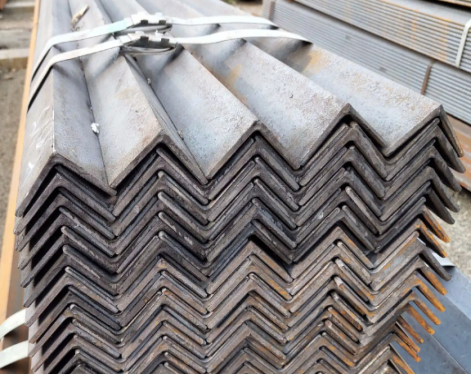Fluid pipes are pipes (mostly seamless pipes) that are specially used to transport media with fluid properties. The media with fluid properties, in addition to liquid media such as water, oil, solution, etc., solid media such as cement, grain, coal powder, etc., can also flow under certain conditions. Fluid pipes can be made of steel, non-ferrous metals such as copper and titanium, or even non-metallic materials such as plastics.
Types of fluid steel pipes
The fluid pipe must have a hollow section, but it can also be square, triangular or any other shape. Some equipment is limited by conditions and must use a rectangular pipe, but most of them still use round pipes. Round tubes have the smallest perimeter/area ratio in all geometric sections, that is, the largest internal section can be obtained under the condition of using the same amount of material. However, round tubes also have certain limitations. For example, under the condition of plane bending, round tubes are not as strong as square and rectangular tubes in terms of bending strength.
Tips: With the continuous improvement of current technology, fluid steel pipes are not necessarily seamless pipes. This process has been approved for use in low and medium pressure boilers and pipelines for conveying fluids. When ordering fluid steel pipes, customers must indicate whether welded pipes or seamless pipes are in the industrial contract. Fluid steel pipes include steel pipes of these two processes, and the difference lies in the delivery price.

Manufacturing method of fluid steel pipe
1. Generally, the operating temperature of boiler tubes is below 450°C, and domestic tubes are mainly made of No. 10 and No. 20 carbon-structured steel hot-rolled tubes or cold-drawn tubes.
2.High-pressure boiler tubes are often under high-temperature and high-pressure conditions during use, and the tubes will be oxidized and corroded under the action of high-temperature flue gas and water vapor. Steel pipes are required to have high durable strength, high resistance to oxidation and corrosion, and good structural stability.
When welded steel pipes are used as pipes for transporting fluid, they have different requirements from ordinary steel pipes:
1. Welds are not allowed to leak. For welded pipes with requirements such as API, it is also required to carry out ultrasonic flaw detection and hydraulic test on the weld seam of each welded pipe;
2. For the transportation of corrosive chemical solutions, all steel pipes must be treated with anti-corrosion inner walls;
3. All fluid pipes need to remove internal burrs to reduce fluid delivery resistance.
Types of fluid steel pipes
The fluid pipe must have a hollow section, but it can also be square, triangular or any other shape. Some equipment is limited by conditions and must use a rectangular pipe, but most of them still use round pipes. Round tubes have the smallest perimeter/area ratio in all geometric sections, that is, the largest internal section can be obtained under the condition of using the same amount of material. However, round tubes also have certain limitations. For example, under the condition of plane bending, round tubes are not as strong as square and rectangular tubes in terms of bending strength.
Tips: With the continuous improvement of current technology, fluid steel pipes are not necessarily seamless pipes. This process has been approved for use in low and medium pressure boilers and pipelines for conveying fluids. When ordering fluid steel pipes, customers must indicate whether welded pipes or seamless pipes are in the industrial contract. Fluid steel pipes include steel pipes of these two processes, and the difference lies in the delivery price.

Manufacturing method of fluid steel pipe
1. Generally, the operating temperature of boiler tubes is below 450°C, and domestic tubes are mainly made of No. 10 and No. 20 carbon-structured steel hot-rolled tubes or cold-drawn tubes.
2.High-pressure boiler tubes are often under high-temperature and high-pressure conditions during use, and the tubes will be oxidized and corroded under the action of high-temperature flue gas and water vapor. Steel pipes are required to have high durable strength, high resistance to oxidation and corrosion, and good structural stability.
When welded steel pipes are used as pipes for transporting fluid, they have different requirements from ordinary steel pipes:
1. Welds are not allowed to leak. For welded pipes with requirements such as API, it is also required to carry out ultrasonic flaw detection and hydraulic test on the weld seam of each welded pipe;
2. For the transportation of corrosive chemical solutions, all steel pipes must be treated with anti-corrosion inner walls;
3. All fluid pipes need to remove internal burrs to reduce fluid delivery resistance.









